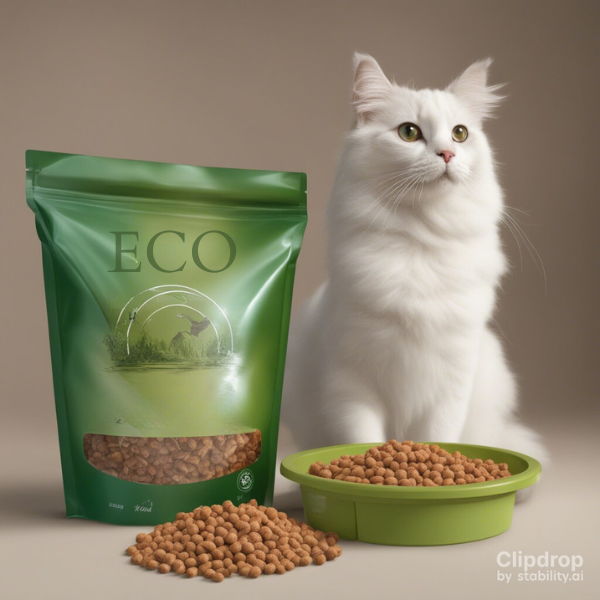BIOPET: transforming pet food for a greener world
In a world grappling with climate change, the potential of biotechnology to combat global warming remains largely untapped. Enter BIOPET, a VIB Grand Challenges Project that focuses on reshaping pet food production through biotechnology. The initiative aims to craft specialized fats known as lipids via ‘yeast factories’ fueled with side streams from food production. This will offer a sustainable alternative to traditional pet food ingredients while aligning with global efforts to reduce greenhouse gas emissions and antibiotic use.
An environmental toll
The food and feed industry is a major contributor to greenhouse gas emissions, accounting for roughly one-third of them. A notable portion of this impact actually comes from pets, who consume around 25% of the world's meat and fish production. Even more so, 20-30% of the agricultural land is dedicated to vegetable oil production, with an estimated increase to 46 % in 2050, which puts even more pressure on the environment. BIOPET is tackling this concern head-on by leveraging biotechnology to create sustainable alternatives to traditional pet food ingredients. The project with partners from VIB, ILVO, University of Cambridge, KU Leuven, Wageningen University and Research, and Bio Base Europe Pilot Plant will specifically focus on crafting lipids, which are fats and oils, to reduce the environmental impact of the pet food industry.
The BIOPET approach
While nowadays we might view fats and oils as negative elements in our diets, they play an essential role in nutrition, digestion, and how food appeals to the senses. The distinct characteristics of animal lipids also prove difficult to replicate with sustainable alternatives without compromising the qualities that make food enjoyable.
“That’s where BIOPET comes in”, says Prof. Kevin Verstrepen, director of the VIB-KU Leuven Center for Microbiology and a leading figure in the realm of microbial sciences. “We want to develop a pioneering microorganism factory capable of producing sustainable fats for pet food with specific chemical and nutritional qualities so they can replace animal fats entirely.”
Using innovative microbiology, systems biology, and synthetic biology the researchers will create a new yeast factory platform that can create these alternative lipids.
“We will develop tools to genetically engineer and characterize yeast cells,” explains Professor Sibylle Vonesch. “Working together with researchers at Cambridge University we can then design cells that are able to effectively metabolize side streams and convert them into our desired lipids.”
Transforming agricultural leftovers
The project aims to use local, underutilized, and low-value side streams from food production in the fermentation process.
“These overlooked byproducts from beer production or crops such as pears and chicory are typically discarded,” says Bart Van Droogenbroeck, coordinator at the ILVO Food Pilot. “By using these, we not only cut down on production costs but also drive us closer to a fully circular bioeconomy.”
These agricultural “side streams” from pears, beer, and chicory will go through special pre-treatments—with machinery, chemicals, and enzymes— to become ready-to-use materials that the yeast factory can feast on and eventually convert to the required lipids.
From lipids to pet food and beyond
But it doesn't stop with creating the lipids. Together with Bio Base Europe Pilot Plant and Wageningen University, this process will be upscaled to create real pet food prototypes. These will be carefully tested to make sure they're stable, tasty, and packed with good nutrition for pets. Plus, they're keeping an eye on the bigger picture—calculating the financial and environmental impacts of the entire process to see how it stacks up against what's currently out there.
The project is also establishing a knowledge and technology hub to engage in communication with stakeholders, regulators, and consumers on the potential of microbial cell factories for food and feed ingredient production. Through co-creation sessions, the aim is to maximize the ultimate added value of the product and foster a higher level of acceptance among all involved parties.
Prof. Bert Sels, expert in biorefinery and catalysis science at the KU Leuven, already sees the bigger picture, “BIOPET's insights can pave the way for other transformative ventures. It can extend to producing biofuels, bio-based chemicals, human food, dairy products, pharmaceuticals, and more. The flexibility of our platform demonstrates its potential beyond pet food.”
A win-win for pets and the environment
The outcome of BIOPET's endeavor is a commendable dual achievement. Pets get to savor food that is not only nutritionally sound but also environmentally responsible. The process effectively turns what would otherwise be waste into a valuable resource, all while adhering to sound scientific and ecological principles. This approach not only addresses greenhouse gas emissions but also tackles concerns related to land and water use, as well as the excessive use of antibiotics, contributing to a more sustainable future.
India Jane Wise



